‘Agent of Putin’: Germany’s ex-chancellor Schröder savaged for maintaining Russia ties
Gerhard Schröder’s refusal to step away from his Russian oil interests or distance himself from Moscow in light of the conflict in Ukraine has damaged his reputation and legacy in Germany, reports Rory Sullivan

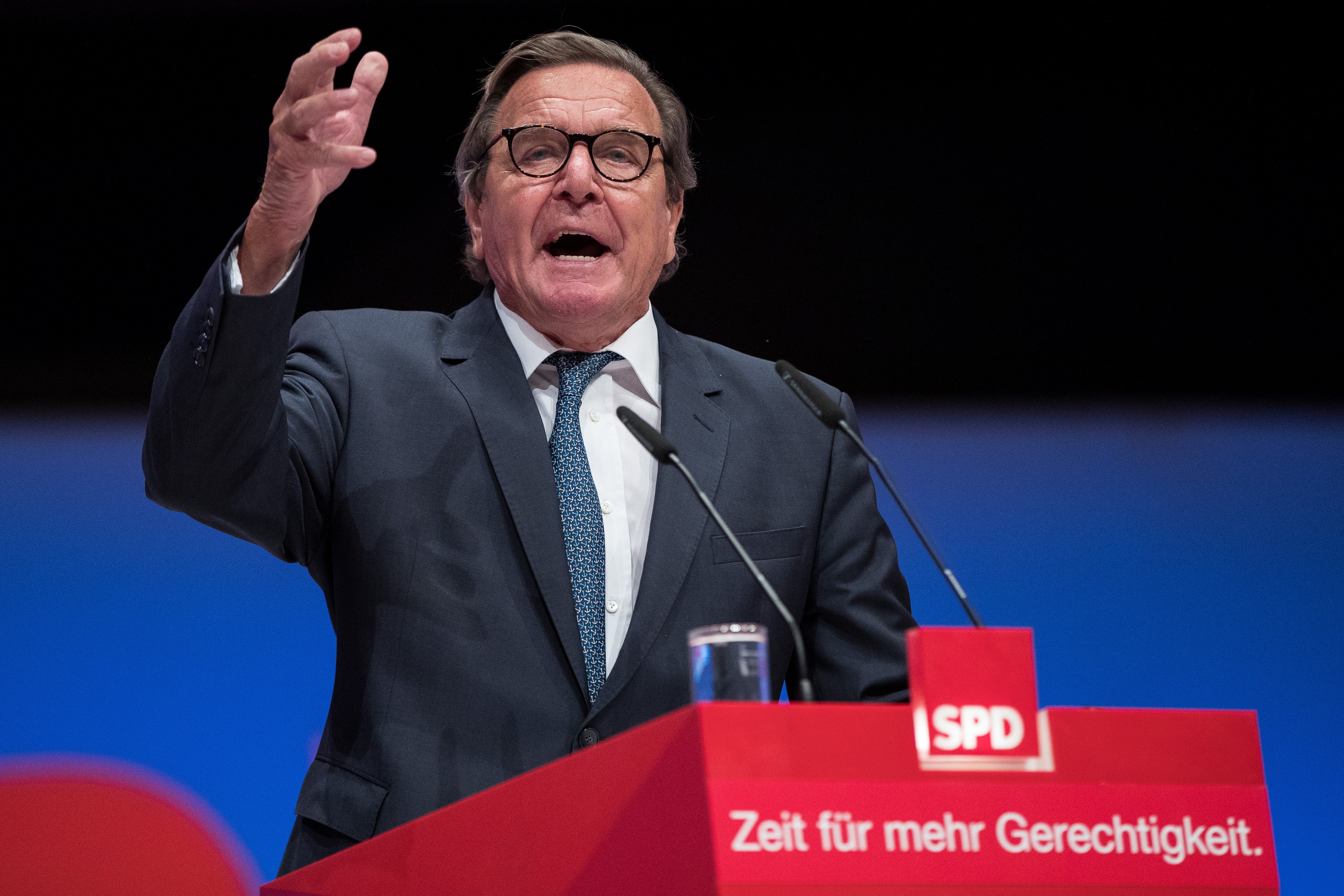
Former German chancellor Gerhard Schröder has become a pariah in his own country.
Owing to his decision not to cut ties with his friend Vladimir Putin after the Kremlin’s invasion of Ukraine, public opinion has now largely crystallised against him and even members of the Social Democratic Party (SPD), which he once governed, have rebuked him.
Citing his decision not to distance himself from Moscow in light of the war, Mr Schröder’s political staff resigned en masse earlier this month, including Albrecht Funk, his long-time speech writer. Gone too is his honorary membership of the football club Borussia Dortmund. His reputation, honours, and friendships are fast dissolving, leaving him increasingly isolated.
The 77-year-old has long cut a divisive figure in certain quarters of German society. For as soon as his chancellorship ended in 2005, he started lobbying on behalf of Russian state energy interests.
Under his guidance, Nord Stream 1, a gas pipeline from Vyborg in Russia to Greifswald in Germany, was launched in 2011. He also played a significant role in the project’s second phase, which was completed in September 2021 before being suspended by the current chancellor Olaf Scholz last month after Russia amassed tens of thousands of troops along Ukraine’s border.
Gerd Koenen, an academic who specialises in the history of German-Russian relations, explained the unusual nature of Schröder’s work with the Kremlin after leaving office.
“It was extraordinary that a German chancellor who had just lost the election went into the service of another big power in such a prominent position,” he told The Independent.
The historian compared Mr Schröder’s behaviour to that of a Russian oligarch. “He was the first in a line of European politicians who went into the service of Russian firms that were instruments of the Russian state.”
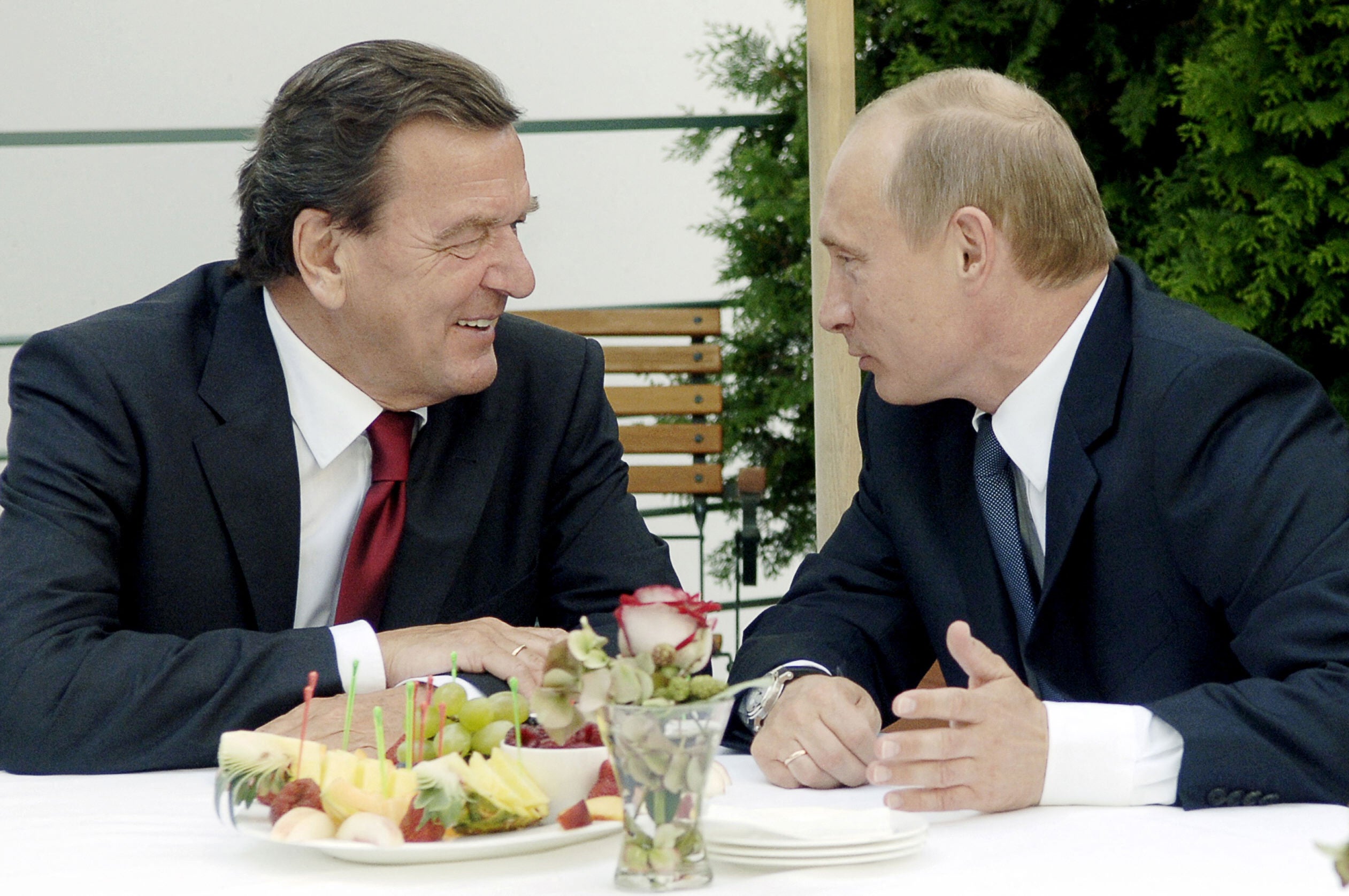
Unlike similar figures such as Austria’s Christian Kern and France’s François Fillon, who recently resigned from their positions at Kremlin-linked companies, Mr Schröder remains chairman of the board at Rosneft, a Russian state oil firm which has been sanctioned by the EU since Moscow’s 2014 annexation of Crimea.
He also remains the chairman of the board of directors at the Nord Stream AG consortium. And at the start of February, Russian state-owned gas company Gazprom nominated him to join its board of directors, although there have been no developments since.
As a result of Mr Schröder’s refusal to step down from Rosneft and Nord Stream AG, the SPD has started proceedings to kick him out of the party, while its political opponents, the Christian Democratic Union (CDU) and the Christian Social Union (CSU), have called on the EU to sanction him, saying he is complicit in “financing the brutal war in Ukraine”.
Michael Brand, a CDU politician who backs such sanctions, said he considered Mr Schröder as less an ex-chancellor and “and more a foreign agent of Putin”.
Mr Schröder did not respond to The Independent’s request for comment, but his current position is set out in an online statement he recently updated, in which he declared that “Russia’s security interests do not justify the use of military means”.
However, he fell short of naming Mr Putin and offering a more robust condemnation of Russia’s actions. The former chancellor also made no reference to his role at Rosneft.
Mr Schröder’s statement suggests he sees himself as a potential peacemaker. “I have spoken with negotiators from both sides, in Istanbul and in Moscow,” he wrote, not long after flying to the Russian capital in early March to speak to Mr Putin about ending the war.
His mediation efforts began after he was approached by a Ukrainian politician, who asked him to use his influence with the Russian leader, according to Politico.
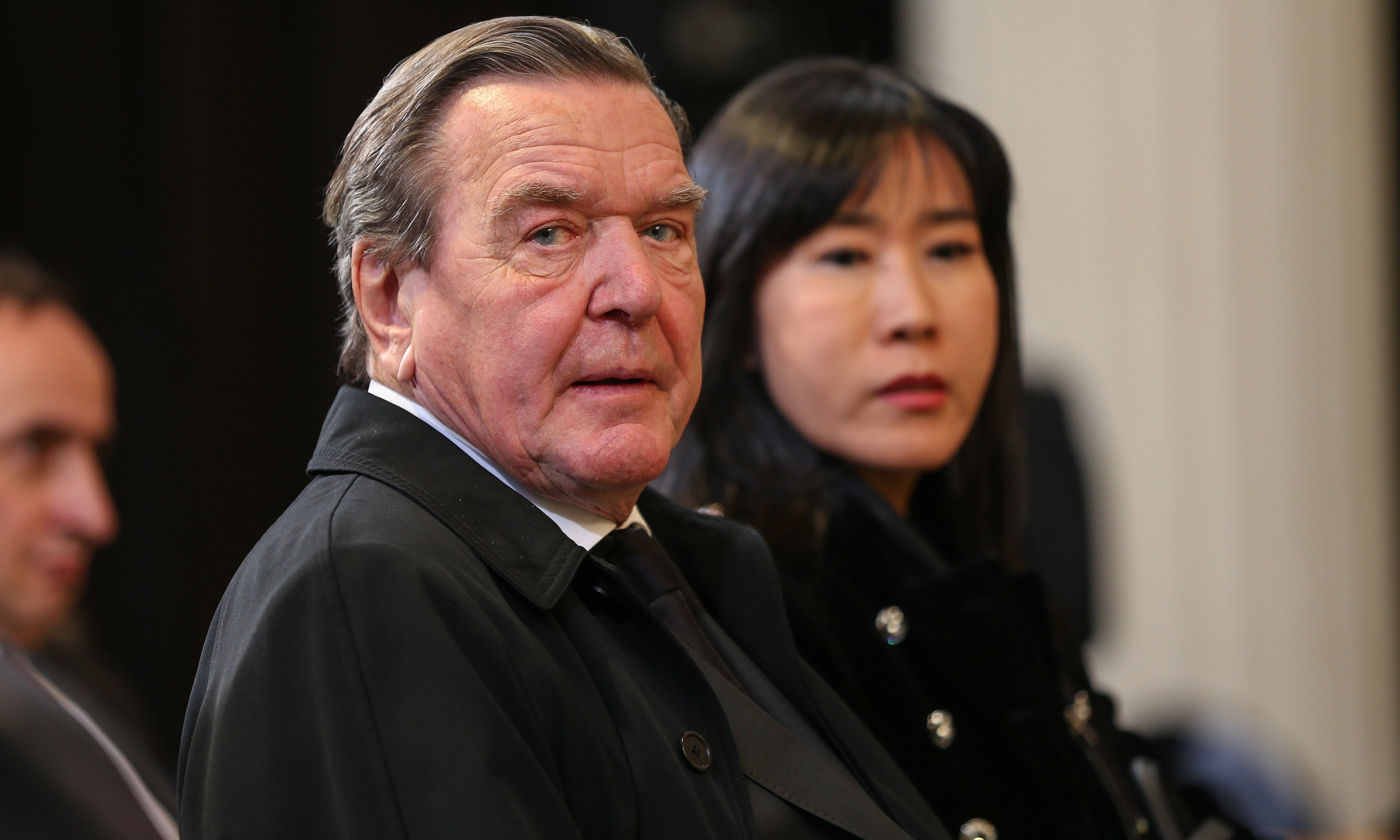
Most commentators were cynical about the prospect of him changing Mr Putin’s mind. Some were harsher, including the German satirical magazine Titanic, which joked that Mr Schröder was eyeing a job as “the new mayor of Kyiv”.
Mr Schröder certainly now has fewer friends in Germany, with SPD politicians among those objecting to his ties to Russia and his behaviour since the invasion.
Adis Ahmetovic, a politician from the centre-left party, praised Mr Schröder’s achievements in office – pointing to how he kept Germany out of the Iraq War by withstanding US pressure for Berlin to join its alliance – but said the former chancellor had let himself down as of late.
“It is necessary to convey at all levels that Russian action is completely unacceptable. At this point, Gerhard Schröder is not living up to his role as former chancellor,” said Mr Ahmetovic, a former chair of the SPD youth wing (Jusos) in Hannover. “We must resolutely oppose Russian imperialism.”
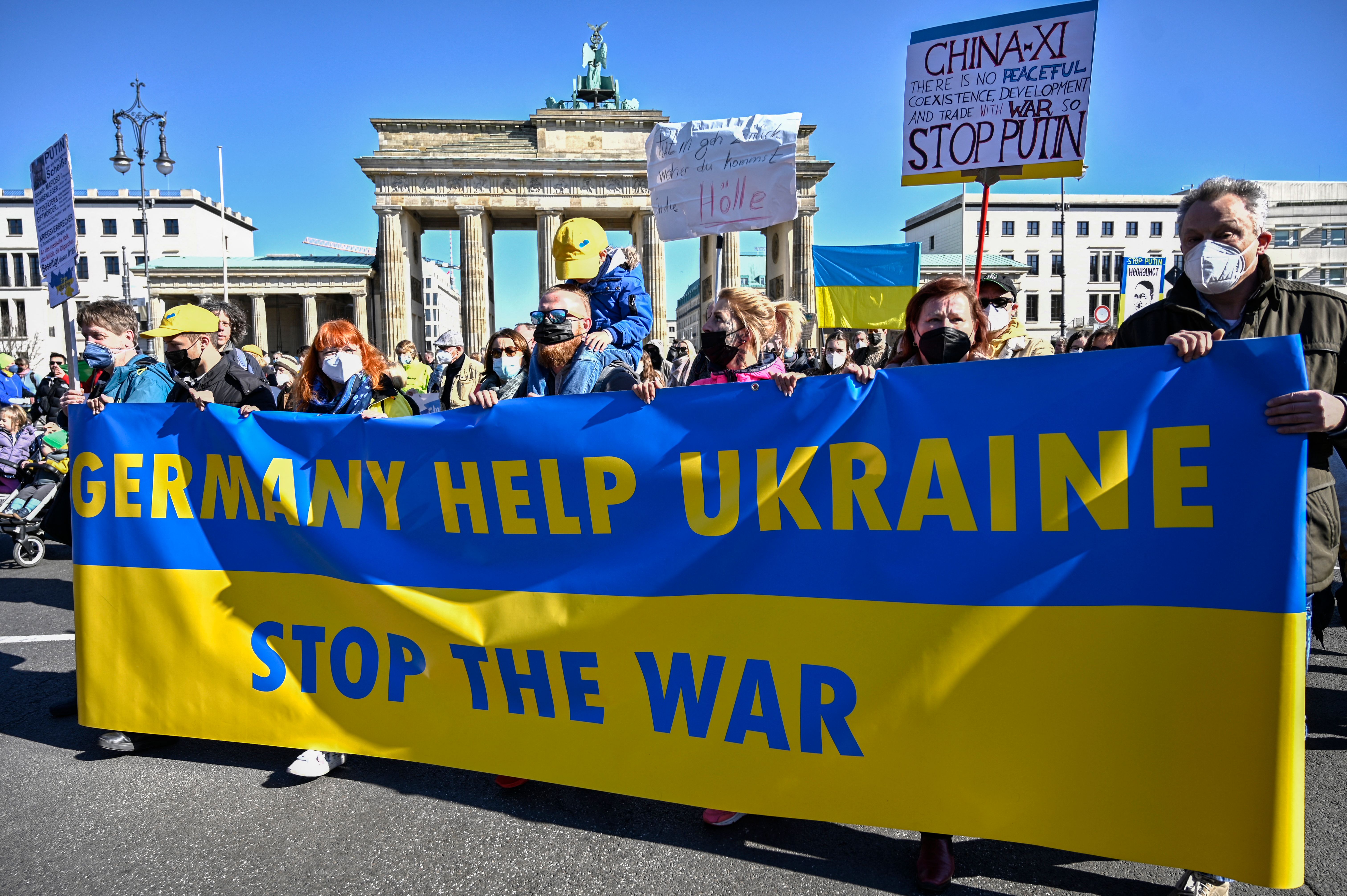
Ralf Stegner, the former deputy SPD leader from 2014 to 2019, agreed with this stance. “After the invasion, there’s no discussion: it’s definitely wrong to get money from the Russian state,” he said.
However, just like Mr Ahmetovic, the SPD veteran also had some praise for his former colleague.
“Schröder put in quiet diplomacy for people being prosecuted either in China, Turkey or Russia. There were many cases when he used his influence for the benefit of people like that. There are different sides to Schröder, put it that way,” Mr Stegner explained.
The 62-year-old wants Mr Schröder to give up his Russian interests then attempt to influence Mr Putin to stop the war. If the former chancellor were to succeed with the latter, Mr Stegner said “this would be a totally different story”.
Hans Kundnani, director of the Europe programme at the Chatham House think tank, was less optimistic. “Schröder has probably lost too much credibility on the western side for him to be that kind of interlocutor. But there is a slight possibility he redeems himself here,” he said.
Although the former chancellor is now unpopular in Germany, Mr Kundnani said his relationship with Russia is in some ways emblematic of Germany’s relationship with Moscow.
“Schröder’s whole approach to Russia does tap into something among the German public.” It did before the Ukraine war at any rate, he noted.
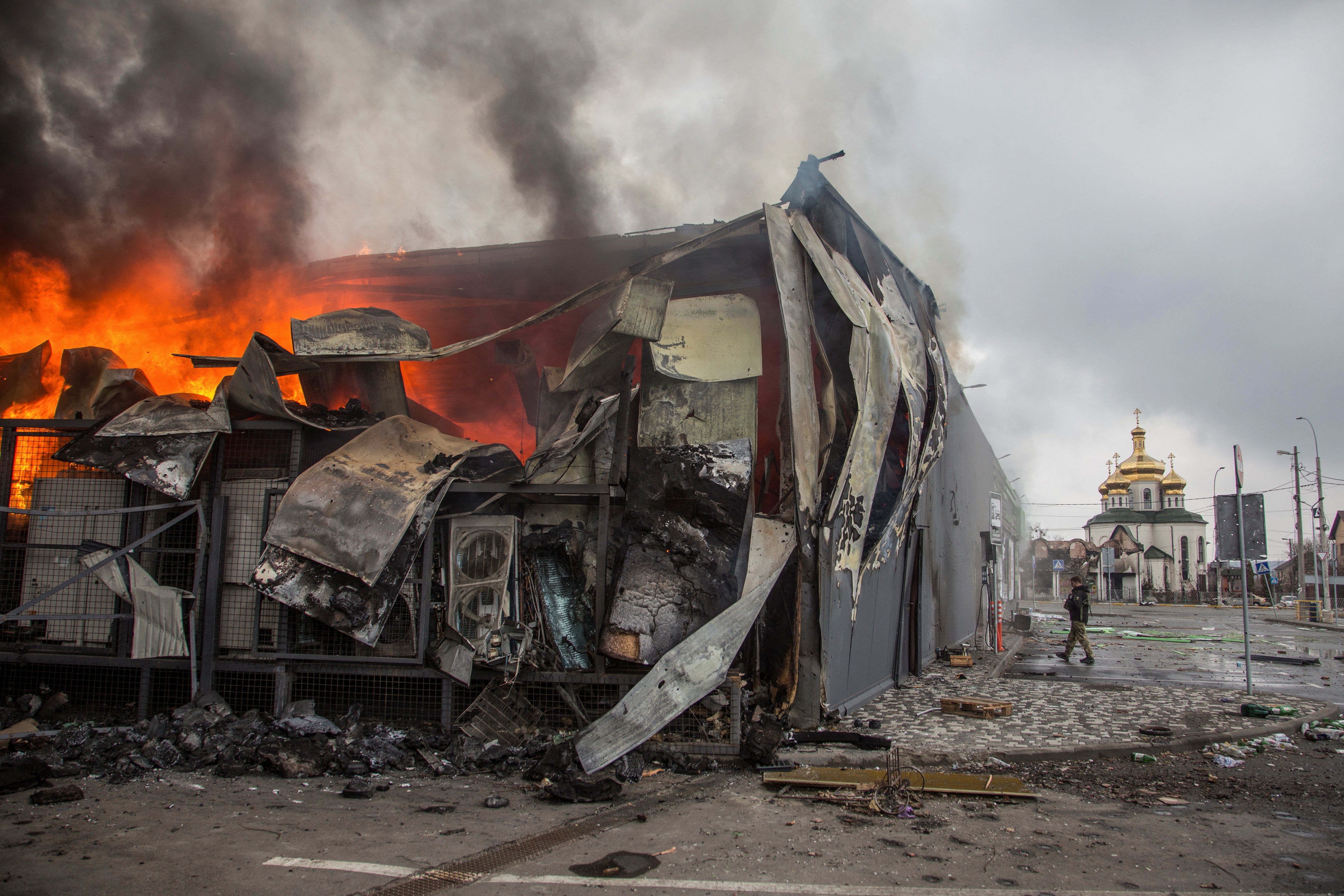
Mr Kundnani highlighted the country’s strong cultural ties with Russia, given that East Germany was ruled by the Soviets for four decades until 1990. Many Germans, particularly the older generations, identify more closely with Moscow than Washington, he said.
It is hard to generalise on pro-Russian sentiment in Germany, as it varies according to age, ideology and geography. It is similarly difficult to gauge how Mr Putin’s war in Ukraine will affect Germans’ perception of Russia in the long term, according to Mr Kundnani.
But Mr Koenen, the academic who writes about German-Russian relations, said he believed the invasion of Ukraine has caused a permanent rupture between the two nations.
“I see it as a catastrophic break between our countries,” he said.
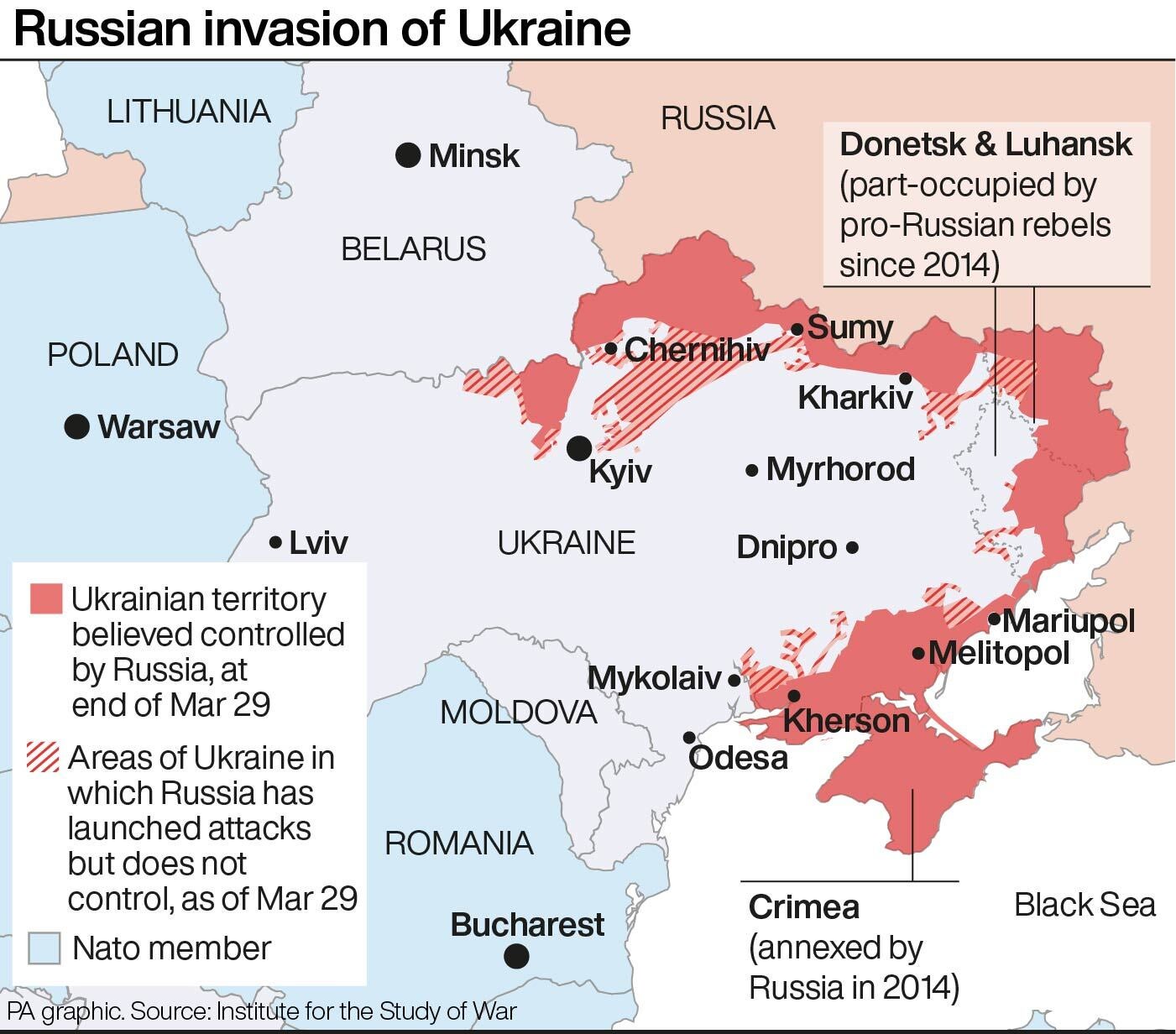
Successive German governments have been too slow to realise the dangers of strengthening relations with Mr Putin and increasing dependence on Russian oil and gas, Mr Koenen said. Russia’s attack on Ukraine has forced Berlin to rethink its foreign policy, resulting in a new €100bn fund to strengthen the German army.
Germany’s approach to Russia has long been one of Wandel durch Annäherung (change through rapprochement). By deepening ties with Moscow, Germany could influence Russia, the thought went. “It has absolutely not worked out,” Mr Koenen said.
It is not just Mr Schröder who is being criticised for his pro-Russian stance. As Angela Merkel, his successor as chancellor, broadly continued his policy towards Moscow, her legacy is being reevaluated in light of events in Ukraine.
Both chancellors backed better energy links between Germany and the Russian Federation, with Merkel approving Nord Stream 2 not long after Moscow’s invasion of Crimea in 2014. The decision came after Berlin had decided to phase out nuclear and coal power.

Mr Koenen ascribed Mr Schröder and Ms Merkel’s failure to “wishful thinking”, saying they hoped Germany could profit from its “special relationship” with Putin’s Russia.
“Germany didn’t understand the brutality, the fierceness and the meaning of the Chechen war, of the Georgian war and of the shooting and poisoning of political opponents,” he said. Nor that Mr Putin was “the preceptor of a new European extreme right”.
For his part, Mr Putin exploited the “positive mood” of Germans, who were still to some extent grateful to Russia for the reunification of their country, according to Mr Koenen.
The academic said he thought public opinion in Germany had shifted irrevocably because of the war in Ukraine.
“The millennial generation all see the darkness and the fascist character of Russian policy,” he added.
Join our commenting forum
Join thought-provoking conversations, follow other Independent readers and see their replies
Comments
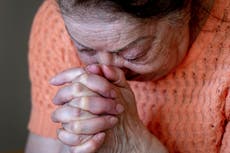
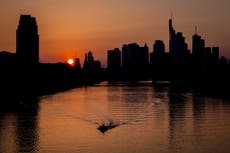
Bookmark popover
Removed from bookmarks